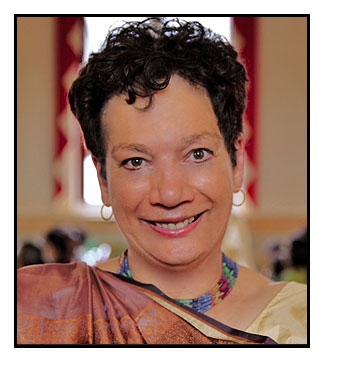|
|
The end of human rights? Citizenship, multiculturalism and the ongoing civilising mission of schools
 Audrey Osler Audrey Osler
Buskerud and Vestfold University College, Norway
Since 1948 the power of human rights has been established and human rights rhetoric has triumphed internationally. Human rights unite left and right, north and south, and often in Europe, church and state. A new cosmopolitan world order promises principles for living together and an end to war and conflict. Yet human rights offer us a range of paradoxes: despite statements about a universal right to life, our news media report the bombing of civilians in Palestine; the abduction of school girls in Nigeria; and willful neglect by European governments of desperate migrants and refugees who risk drowning in the Mediterranean. The economic gap grows in the West between rich and poor and globally between north and south.
Human rights are an expression of the human urge to resist oppression. Their power unites Chinese dissidents; gay rights and women’s rights activists; and environmental campaigners. Yet at the same time, it has been claimed that human rights have become tools for the perpetuation of western hegemony and the civilizing mission (Douzinas, 2000; Hopgood, 2013). Scholars also refer to the Nordic human rights paradox, whereby human rights are promoted internationally but comfortably celebrated at home, so that injustices close to hand are made invisible. At home, human rights scholarly analysis is marginalized and applied to the Other, not the mainstream.
As our schools systems respond to calls for education for democratic citizenship and to multicultural school populations, I pose the question: are current efforts to introduce and strengthen human rights education in European multicultural societies an attempt to promote cosmopolitan values, recognition of the Other and solidarity and struggle across difference? (Osler and Starkey, 2010) Or is the new focus on human rights education (HRE) and education for democratic citizenship simply a new reiteration of the missionary and civilizing mission of schools? Is HRE simply part of a more cynical project to manage diversity and resist change, and maintain the current power balance within multicultural societies? I argue that we need a more theorized and critical approach to human rights education if the HRE project is to support its original goal of realizing a more peaceful and just world.
Douzinas, C. (2000) The end of human rights. Hart Publishing: Oxford and Portland OR.
Hopgood, S. (2013) The endtimes of human rights. Cornell University Press: Ithaca, NY and London.
Osler, A. and Starkey, H. (2010) Teachers and human rights education. Trentham/ IOE Press: London.
AUDREY OSLER is Professor of Education at Buskerud and Vestfold University College, Norway and Professor Emerita (Citizenship and Human Rights Education) at the University of Leeds, UK. She has taught as visiting professor at a number of universities in the UK, US and East Asia and holds honorary positions at universities across the globe, including Birkbeck, University of London; University of Iceland; and Hong Kong Institute of Education, China. Her research addresses both education policy and practice with a specific focus on social justice. She has a long-standing interest in ways in which nationalism and identity operate within education to include or exclude. Audrey has undertaken research and consultancy in a number of post-conflict settings, including Northern Ireland; Ethiopia; Aceh, Indonesia; and most recently Cyprus and Kurdistan, Iraq. She is widely published, including 18 books and over 100 articles in peer reviewed journals and books. Her work has been translated into Japanese, Mandarin and various European languages. Audrey works as an expert for many international organisations, including UNESCO and the Council of Europe. She is currently writing a book on Human Rights and Schooling: cosmopolitan ideals and everyday realities for Teachers College Press, New York in the Multicultural Education Series edited by James A. Banks.
|